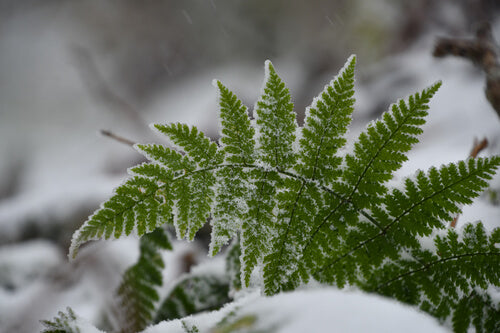Some types of ferns for cold zones can provide greenery throughout winter. Others will die off and come back to life as soon as the weather warms up in the spring. These plants are hardy and shade-tolerant. They are primarily used for decorative purposes in landscaping schemes, such as a border next to a home or fence.
If you find cultivating plants in a shady and cold area complex, you need a solution to maintain a vibrant, beautiful garden all year. Opting for cold weather ferns is the best way to solve this problem. These hardy plants are known for their power to thrive in cold weather conditions while providing lush greenery all year round. No matter your local climate, cold-tolerant ferns will not only withstand cold and snow but also give you a tropical feel, which is hard to achieve in cold zones.
For gardeners looking for hardy and low-maintenance plants that provide greenery all year long, TN Nursery has you covered. From Christmas Ferns to Sensitive Ferns, we have an array of cold-hardy ferns to choose from.
Featured Ferns for Cold Zones
Maintaining a lush green garden in colder zones may seem impossible, but ferns are adapted to grow in colder climates. No matter where you live, ferns can turn your dead garden into a bright green space, defying all odds.
TN Nursery features some popular cold-tolerant ferns that retain their bright green throughout the seasons, including winter. The Sensitive Fern is a deciduous and hardy plant with long-stalked and bright green fonds that curl up when touched or exposed to cold.
Christmas Fern Does Great In Cold Zones
As the name suggests, Christmas Fern is a popular choice for holiday decorations and features leathery dark fonds that stay green throughout the winter. This plant offers numerous landscaping benefits and is known for its elegant and aesthetic appearance.
Scented Fern is another excellent addition to your shady garden. It’s known for its versatility and landscaping benefits. This tough plant has delicate bright green fonds and offers evergreen foliage even during winter.
Make Your Landscape Pop With Ferns for Cold Zones
Choose any cold, hardy ferns according to your climate zone to achieve elegant and green outdoors.










